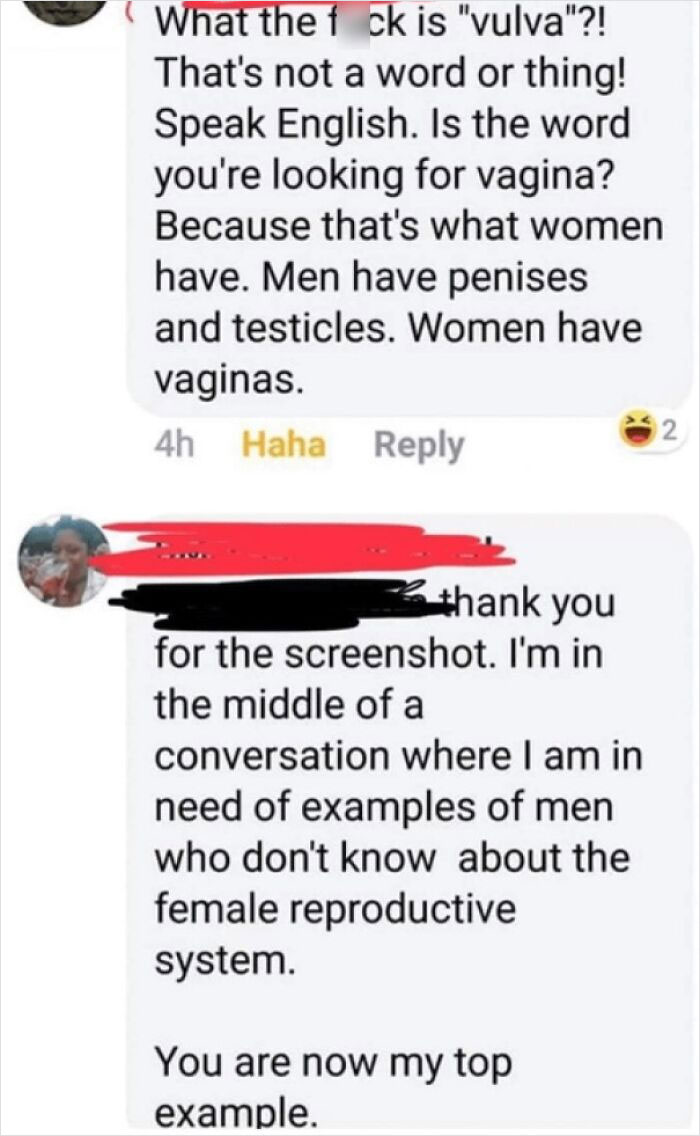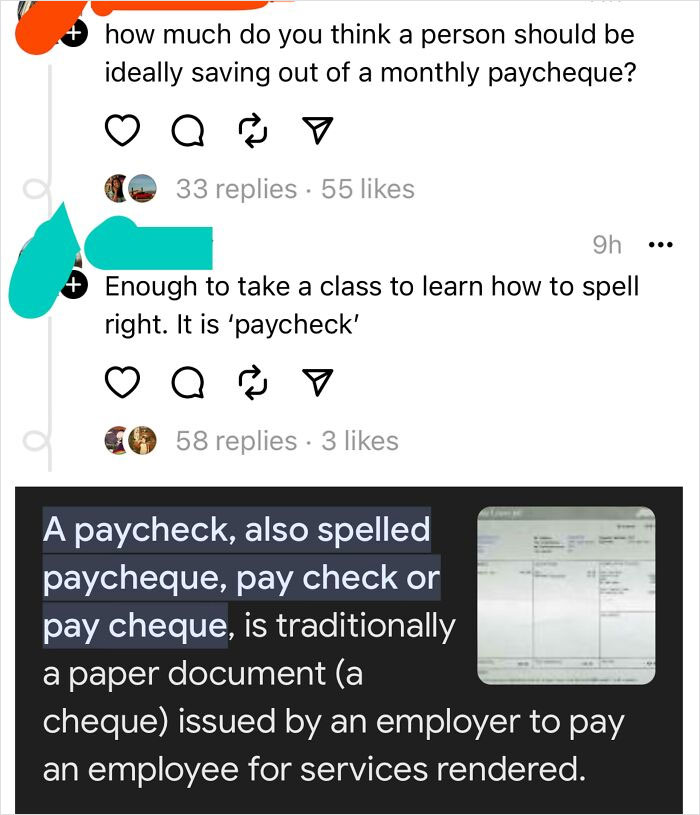This post may includeaffiliate links.
RELATED:We all like to believe that we are logical and rational creatures. However, in reality, humans are subject to preconceived judgments that unconsciously influence our decisions.When we overconfidently think we’re right and can’t seem to accept the fact that we’re not, we’re experiencingconfirmation bias.As trusted onlinemental healthresource Verywell Mindexplained, “Confirmation bias is a type of cognitive bias that favors information that confirms your previously existing beliefs or biases.”A cognitive bias is a systematic thinkingerrorthat occurs in our minds when our brain attempts to simplify information about our surroundings. Processing all the data available to us takes a lot of time and energy, so our brains pick the details that agree with our pre-existing opinions and knowledge. They act as general rules that help us make sense of the world and reach decisions quicker.Let’s have a look at an example that illustrates confirmation bias better. Imagine that you believe that Kamala Harris is a better choice for US president than Donald Trump. Chances are that you will seek information that showcases the candidate you support in a positive light while dismissing any facts that might have a negative effect on their image.Once you’re confronted with new information about Harris that confirms what you already believe, you’ll be more likely to accept it as true, overlook any flaws in it, incorporate it into your belief system, and remember it later to support your opinion during a discussion. On the other hand, if the new facts contradict your view of the candidate, you’ll be more likely to get defensive about it, criticise it and forget it later on.Due to our tendency to dismiss data that isn’t compatible with our belief system, it can impair our logic and decisions and lead to poor choices. For instance, if we’re convinced that a certain investment is beneficial for us, we might ignore the red flags saying it’s not. Or if we are set on getting a job at a particular company, we may dismiss the signs showing it’s a toxic work environment.There’s no way to eliminate confirmation bias, as it happens due to the natural way our brains work. On a positive note, it can make us feel confident in our beliefs and preserve or build our self-esteem. This also helps us stay certain and secure in our environment.Even though this way of thinking can’t be entirely removed, we can take steps to avoid it. First, it’s important to accept that we have biases that impact our decisions. It’s in our nature to use mental shortcuts that allow us to make judgments more efficiently, but it also means that we tend to disregard facts that contradict our views.Then, when looking for information, thoroughly consider all the evidence available rather than just seeing data that confirms your opinion. Use credible sources and read them entirely before drawing any conclusions. Pointing out biases in others (respectfully, of course!) can additionally help an individual think more critically.“Even if we can’t change others' biases, remember they may be at play when we find ourselves in a disagreement with someone who seems very entrenched in their own viewpoint,” licensed psychologist David Susman, PhD, explains. “Rather than confronting them directly about how inaccurate or irrational we think they are, it’s often more productive to present facts and information in a nondirective way and ask them to consider an alternative point of view or some point of compromise.“Continue reading with Bored Panda PremiumUnlimited contentAd-free browsingDark modeSubscribe nowAlready a subscriber?Sign InSee Also on Bored PandaSee Also on Bored PandaSee Also on Bored PandaSee Also on Bored PandaSee Also on Bored PandaSee Also on Bored PandaSee Also on Bored Panda

RELATED:


We all like to believe that we are logical and rational creatures. However, in reality, humans are subject to preconceived judgments that unconsciously influence our decisions.When we overconfidently think we’re right and can’t seem to accept the fact that we’re not, we’re experiencingconfirmation bias.
We all like to believe that we are logical and rational creatures. However, in reality, humans are subject to preconceived judgments that unconsciously influence our decisions.
When we overconfidently think we’re right and can’t seem to accept the fact that we’re not, we’re experiencingconfirmation bias.



As trusted onlinemental healthresource Verywell Mindexplained, “Confirmation bias is a type of cognitive bias that favors information that confirms your previously existing beliefs or biases.”A cognitive bias is a systematic thinkingerrorthat occurs in our minds when our brain attempts to simplify information about our surroundings. Processing all the data available to us takes a lot of time and energy, so our brains pick the details that agree with our pre-existing opinions and knowledge. They act as general rules that help us make sense of the world and reach decisions quicker.
As trusted onlinemental healthresource Verywell Mindexplained, “Confirmation bias is a type of cognitive bias that favors information that confirms your previously existing beliefs or biases.”
A cognitive bias is a systematic thinkingerrorthat occurs in our minds when our brain attempts to simplify information about our surroundings. Processing all the data available to us takes a lot of time and energy, so our brains pick the details that agree with our pre-existing opinions and knowledge. They act as general rules that help us make sense of the world and reach decisions quicker.



Let’s have a look at an example that illustrates confirmation bias better. Imagine that you believe that Kamala Harris is a better choice for US president than Donald Trump. Chances are that you will seek information that showcases the candidate you support in a positive light while dismissing any facts that might have a negative effect on their image.



Once you’re confronted with new information about Harris that confirms what you already believe, you’ll be more likely to accept it as true, overlook any flaws in it, incorporate it into your belief system, and remember it later to support your opinion during a discussion. On the other hand, if the new facts contradict your view of the candidate, you’ll be more likely to get defensive about it, criticise it and forget it later on.



Due to our tendency to dismiss data that isn’t compatible with our belief system, it can impair our logic and decisions and lead to poor choices. For instance, if we’re convinced that a certain investment is beneficial for us, we might ignore the red flags saying it’s not. Or if we are set on getting a job at a particular company, we may dismiss the signs showing it’s a toxic work environment.



There’s no way to eliminate confirmation bias, as it happens due to the natural way our brains work. On a positive note, it can make us feel confident in our beliefs and preserve or build our self-esteem. This also helps us stay certain and secure in our environment.



Even though this way of thinking can’t be entirely removed, we can take steps to avoid it. First, it’s important to accept that we have biases that impact our decisions. It’s in our nature to use mental shortcuts that allow us to make judgments more efficiently, but it also means that we tend to disregard facts that contradict our views.



Then, when looking for information, thoroughly consider all the evidence available rather than just seeing data that confirms your opinion. Use credible sources and read them entirely before drawing any conclusions. Pointing out biases in others (respectfully, of course!) can additionally help an individual think more critically.



“Even if we can’t change others' biases, remember they may be at play when we find ourselves in a disagreement with someone who seems very entrenched in their own viewpoint,” licensed psychologist David Susman, PhD, explains. “Rather than confronting them directly about how inaccurate or irrational we think they are, it’s often more productive to present facts and information in a nondirective way and ask them to consider an alternative point of view or some point of compromise.”













Continue reading with Bored Panda PremiumUnlimited contentAd-free browsingDark modeSubscribe nowAlready a subscriber?Sign In
Continue reading with Bored Panda Premium
Unlimited contentAd-free browsingDark mode
Unlimited content
Ad-free browsing
Dark mode
Subscribe nowAlready a subscriber?Sign In
















See Also on Bored Panda










































Modal closeAdd New ImageModal closeAdd Your Photo To This ListPlease use high-res photos without watermarksOoops! Your image is too large, maximum file size is 8 MB.Not your original work?Add sourcePublish
Modal close
Add New ImageModal closeAdd Your Photo To This ListPlease use high-res photos without watermarksOoops! Your image is too large, maximum file size is 8 MB.Not your original work?Add sourcePublish
Modal closeAdd Your Photo To This ListPlease use high-res photos without watermarksOoops! Your image is too large, maximum file size is 8 MB.Not your original work?Add sourcePublish
Add Your Photo To This ListPlease use high-res photos without watermarksOoops! Your image is too large, maximum file size is 8 MB.
Add Your Photo To This List
Please use high-res photos without watermarks
Ooops! Your image is too large, maximum file size is 8 MB.
Not your original work?Add source
Modal closeModal closeOoops! Your image is too large, maximum file size is 8 MB.UploadUploadError occurred when generating embed. Please check link and try again.TwitterRender conversationUse html versionGenerate not embedded versionAdd watermarkInstagramShow Image OnlyHide CaptionCropAdd watermarkFacebookShow Image OnlyAdd watermarkChangeSourceTitleUpdateAdd Image
Modal closeOoops! Your image is too large, maximum file size is 8 MB.UploadUploadError occurred when generating embed. Please check link and try again.TwitterRender conversationUse html versionGenerate not embedded versionAdd watermarkInstagramShow Image OnlyHide CaptionCropAdd watermarkFacebookShow Image OnlyAdd watermarkChangeSourceTitleUpdateAdd Image
Upload
UploadError occurred when generating embed. Please check link and try again.TwitterRender conversationUse html versionGenerate not embedded versionAdd watermarkInstagramShow Image OnlyHide CaptionCropAdd watermarkFacebookShow Image OnlyAdd watermark
Error occurred when generating embed. Please check link and try again.
TwitterRender conversationUse html versionGenerate not embedded versionAdd watermark
InstagramShow Image OnlyHide CaptionCropAdd watermark
FacebookShow Image OnlyAdd watermark
ChangeSourceTitle
You May Like30 Times People Dropped ‘Rare Compliments’ That Were So Funny And Weird, They Went Viral (New Pics)Greta Jaruševičiūtė50 Times Clueless Older People On Social Media Cracked People UpAurelija Rakauskaitė88 Funny Graphic Design Fails Reminding Us That No, Not Anyone Can Do ItAivaras Kaziukonis
Greta Jaruševičiūtė
Aurelija Rakauskaitė
Aivaras Kaziukonis
Funny